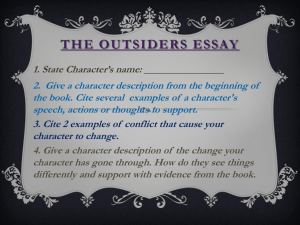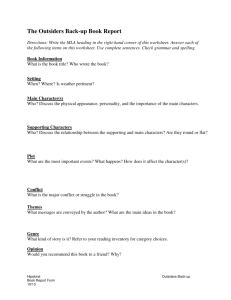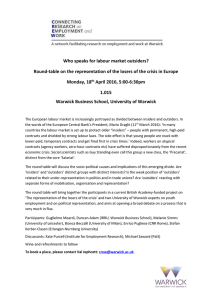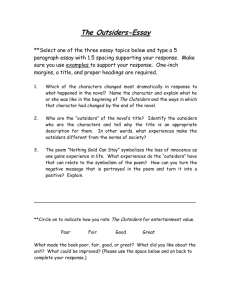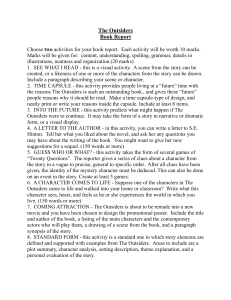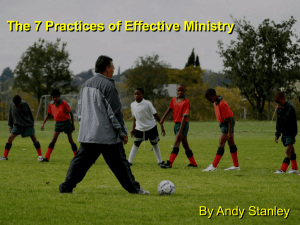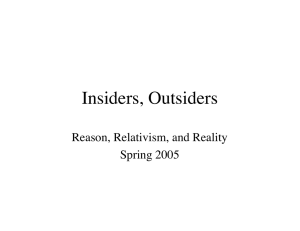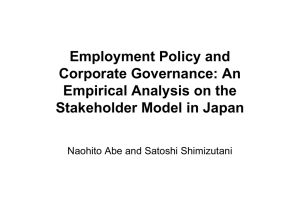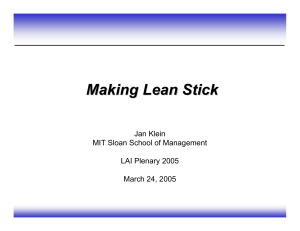The problem - University of Gloucestershire
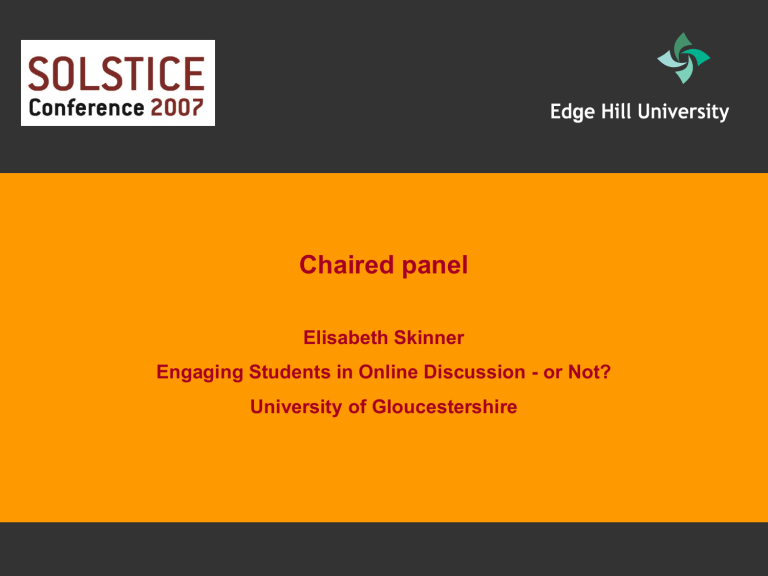
Chaired panel
Elisabeth Skinner
Engaging Students in Online Discussion - or Not?
University of Gloucestershire
The Problem
• Poor levels of participation in online discussion
– despite assessment
– despite discussion of benefits
– despite skills workshops
The Student Experience
• 25 students Level 1, Semester 1, studying heritage, environmental, landscape and community management
• Assessed online discussion with ten tasks in five sessions based on
Salmon’s 5-stage model over eight weeks with five deadlines
• Skills audit, skills workshops, monitoring performance, reflective activity, interviews
Being Late
• 16% never late, 16% always late
• 72% late for activities 2, 3 and 4
• 40% very late for activity 2
• 24% very late for activity 3
• 60% very late for activity 4
The Literature
• Community development
– the creative development of people
– social inclusion
– empowering people
• Teaching and learning
– personal development
– knowledge construction in learning communities
– engaging with the curriculum
Benefits of Participation
• Capacity building
– skills and confidence to tackle individual and collective challenges
– changing power structures
• Through participation not before
– ‘benefits are somewhat intangible and it is likely that people will be unaware of these benefits until they take part’ (Dalziel 2007:26)
Outsiders
• ‘The squandering of a considerable resource’ of social and human capital (Moseley
2003:90)
• People may appear apathetic but community development work can find ‘the vigour, initiative and skills which in fact exist in them’ (Henderson and
Thomas 2002:106)
Barriers to Participation
• Community spaces are dominated by strong insiders.
• Those in power prefer the strong insiders.
• Outsiders find insiders daunting.
• Outsiders are beset by a plethora of fears.
• Outsiders find that community spaces can be inhospitable places.
Choosing to Participate
• Variety of personal interests and needs (not a homogeneous mass)
– issues that are important to them
– feeling strongly about outcomes
– wanting to influence outcomes
Encouraging participation
• ‘Simply encouraging more people to participate seems a somewhat forlorn hope’
(Skidmore et al 2006:xi)
• Reach out into a space where the outsiders feel safe and comfortable
• Make personal contact using the right language
Motivation
• ‘Minimal motivation’ and
‘motivation nil’
• ‘I really had no clue about management and its principles.’
• ‘When I found out that many of the tasks involved applying management principles to heritage my motivation improved.’
Understanding of
Learning
• Learning as personal development provides motivation or determination to participate.
• Learning as the acquisition of knowledge does not provide motivation or determination and therefore hinders participation.
Re-designing the activity
• Connect with the students’ emotional interest in their subject from the start
• Retain skills audit and workshops as opportunities for personal connection
• Give time and space for reflection on motivation at the start as well as at the end
• Retain personal support and feedback from both students and teacher
Final Thoughts
• As teachers can we ignore the students who fail to participate?
• Do we have the resources and know-how to reach out to students, make personal contact and respond to their diversity?
References
• BARNETT, R. and COATE, K., 2004. Engaging the Curriculum in Higher
Education. Maidenhead: Open University Press.
• DALZIEL, D., HEWITT, E. and EVANS, L., 2007. Motivations and Barriers to
Citizen Governance. London: Department of Communities and Local
Government.
• ENTWISTLE, N., 2003. Occasional report 3: Concepts and conceptual frameworks underpinning the ETL Project. Edinburgh: ETL Project
• HENDERSON, P., and THOMAS, D.N., 2002 3rd ed. Skills in
Neighbourhood Work. London: Routledge.
• JISC, undated. Understanding my Learning: Background and rationale. www.jisc.ac.uk/uploaded_documents/understanding_mylearning.doc
[accessed 27.11.06]
• MOON, J., 2004. A Handbook of Reflective and Experiential Learning.
London: Routledge Falmer.
• MOSELEY, M., 2003. Rural Development: Principles and Practice. London:
Sage
• SALMON, G., 2000. E-moderating: the key to teaching and learning online.
London: Kogan Page.
• SKIDMORE, P., BOUND, K. and LOWNSBOROUGH, H., 2006. Community participation: Who benefits? York: Joseph Rowntree Foundation.
